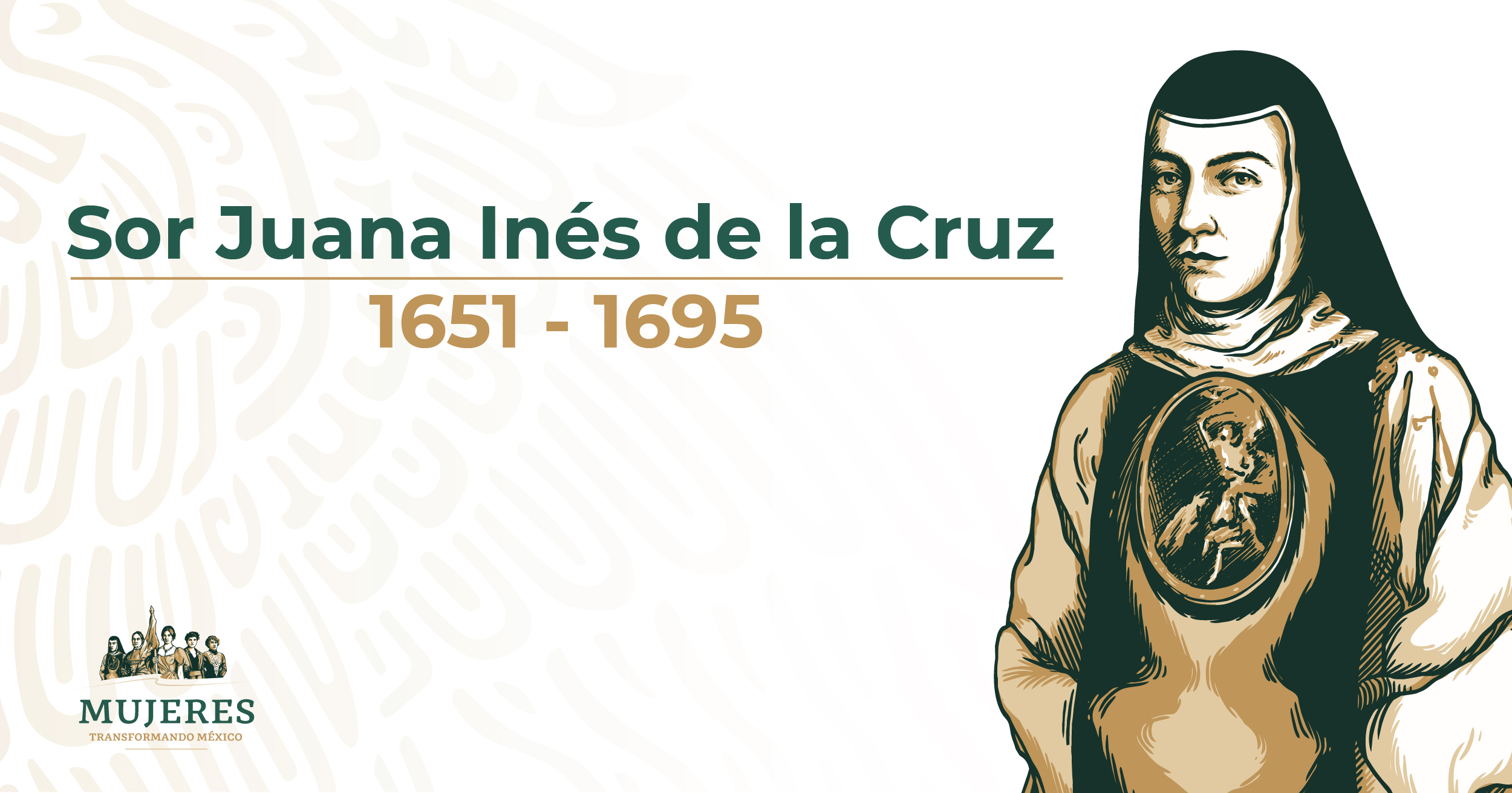By Carmen Chang,
Some critics see it as an expression of a loving affection for the vice-queen, others refer to the lyrical tone adopted by Sor Juana to the influence of Neoplatonic philosophy, the courtly language, and Petrarch. Still, some see the passionate nuance of certain poems as the manifestation of an attitude of allegiance of the vassal towards his lord out of esteem and admiration, and not for reasons of love.
All the reasons presented above are plausible, but a strong reason seems to be more convincing. The real reason was likely of another nature and the crisis through which Sor Juana passed was of another nature. Having no desire to marry, nor to be able to marry someone of her social condition as an illegitimate girl perceived as the fruit of an unforgivable sin for the society of her time, she chose convent life because it was the best option for a single girl of the time.
In this regard, she confessed: «I chose religious teaching because of the total negation I had for marriage, it was the most decent thing I could choose in terms of salvation». Also the nun «will later explain her choice of life: “Living alone… not to have a compulsory occupation that encompasses the freedom of my study, nor to have community rumors that would prevent the peaceful silence of my books”. It appears that his choice was the fruit of a reflection on her social condition as a woman and her intellectual inclinations which found in the conventual life the refuge and the space where her ambitions could be concretized. Moreover, Mexican poetics found that she chose the convent for practical reasons, not for a real vocation. At the time, Sor Juana expressed her doubts to Father Diego Calleja, confessing, “I feared that [monastic missions] would not give me sufficient time and would deprive me of the desire to pursue [my intellectual vocation] ”.
It is relevant to address this subject to better understand the historical context that surrounded Sor Juana: how and where did these seventeenth-century girls learn their knowledge? «They learned as children, collectively, with their friends or in the female cloisters, although few of them devoted themselves to writing». This brings us to the theme of women’s education at the time. It was a subject of discussion on which Sor Juana spread out in her Response to Sor Philotea which constitutes an autobiographical text that shows the hazardous life of a nun devoted to knowledge.

Her Answer is an essential work to know her extraordinary (almost) self-taught training in the humanities and sciences. If one reads Octavio Paz’s book carefully, one will realize the insistence with which she speaks of the encyclopedic knowledge of Sor Juana. «It is precisely the encyclopedic character of Sor Juana’s knowledge that will subsequently nourish her creativity and her imaginary world that she forged with the language she learned from books. This knowledge allowed her to establish links and synthesize, thus to imagine and philosophize». In her Reply, Sor Juana considered the advisability of studying letters for women and specified the importance of women’s training: «I do not study to write, much less to teach (which was in me an inordinate pride), but only to see if while studying, I know less».
Sor Juana was self-taught, which allowed her to study what interested her, and in the way she wanted, without a time limit, and any commitment. She was mainly involved in music and theologies so much so that she gained the fame of an expert. In this perspective, Alfonso Reyes (1979) puts it in the rank of great thinkers such as Aristotle and Bergson: «[…] Moreover, any particular discipline, as a discipline, exercises the strategy of knowledge, strengthens the aptitude of research, and does not hinder, previously, the journey through the ocean of the humanities».
Although the 17th century was a period dominated by men, Sor Juana was the exception. Her life was marked by two heavy burdens to bear for the circumstances of the time: being a woman and being born illegitimately. But this did not prevent her from distinguishing herself by her qualities, talents, and developed intellect. She did not enjoy the same conditions as the contemporary priests Luis de Góngora and Brother Luis de León, who had more facilities to achieve greater literary production by the simple fact of being men. By studying her life and work, she passed on to us her great wisdom, encyclopedic knowledge, artistic gifts, and experiences as a female figure of her time. Both through her writings (thanks to which we can better know Sor Juana for her autobiographical references), and through the texts of the researchers of her life and her work who devoted themselves to investigating this historical figure, one can go further in one’s personal life and decipher the personal circumstances that led one to devote oneself to monastic life.
Her entry into the convent would have allowed her to continue her studies, to maintain her many friendships, and to participate in this refined life to which she was accustomed. According to Giuseppe Bellini (2011), although Sor Juana had religious obligations, it is true that she had enough time to dedicate herself to studying and writing. In addition, it was very popular in the viceregal society and many renowned personalities would visit them at the convent.
References
- BELLINI, Giuseppe, Nueva historia de la literatura hispanoamericana (LITERATURA Y SOCIEDAD. L/S. nº 60) (Spanish Edition) Format Kindle, Castalia, 2011.
- BENASSY-BERLING, Marie-Cécile, Sor Juana Inés de la Cruz, une expression des élites culturelles mexicaines du XVIIe siècle, Caravelle. Cahiers du monde hispanique et luso-brésilien, Année 1996, 67, p. 23-36. Available here
- Biblioteca de la Pontificia Universidad Católica del Perú, El amor sin tabúes entre Sor Juana Inés de la Cruz y la virreina de México, Lima, Pontificia Universidad Católica del Perú, 2017. Available here
- CAMPOAMOR, Clara, Los poetas. Sor Juana Inés de la Cruz, Madrid, Ediciones Júcar, 1983




